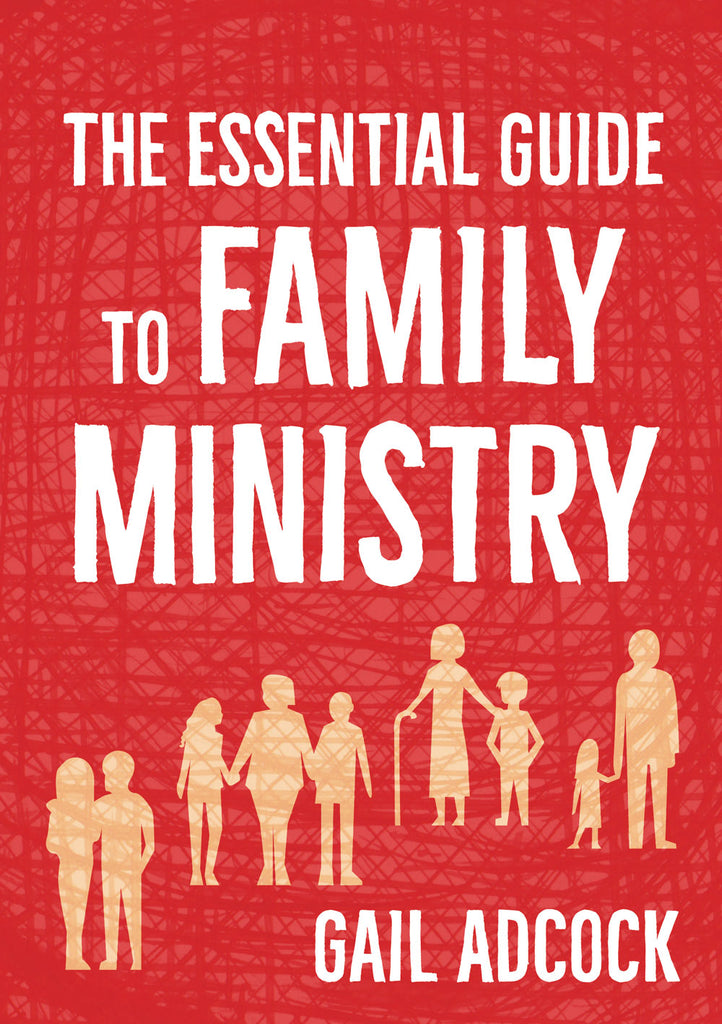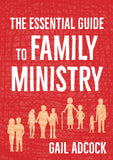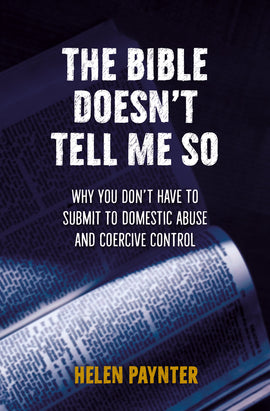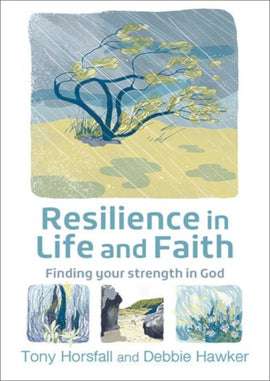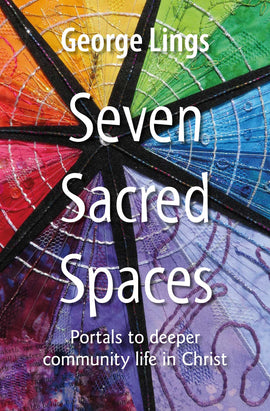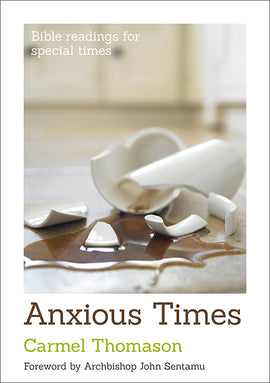The Essential Guide to Family Ministry: A practical guide for church-based family workers
A comprehensive foundation for those working in the increasingly complex and diverse area of ministry with families, The Essential Guide to Family Ministry presents an overview of contemporary family life, sets out the principles that underpin this work and offers strategic and practical approaches to working with families.
An essential read for all who are involved in this field and passionate about seeing God’s kingdom come in families, churches and communities.
| Title | The Essential Guide to Family Ministry: A practical guide for church-based family workers |
| Author | Gail Adcock |
| Description | A comprehensive foundation for those working in the increasingly complex and diverse area of ministry with families, The Essential Guide to Family Ministry presents an overview of contemporary family life, sets out the principles that underpin this work and offers strategic and practical approaches to working with families. |
| Details |
|
A comprehensive foundation for those working in the increasingly complex and diverse area of ministry with families, The Essential Guide to Family Ministry presents an overview of contemporary family life, sets out the principles that underpin this work and offers strategic and practical approaches to working with families.
An essential read for all who are involved in this field and passionate about seeing God’s kingdom come in families, churches and communities.
Gail Adcock is Family Ministry Development Officer with the Methodist Church GB, equipping and resourcing those working with families across the UK. She has a primary education background, was family pastor at Stopsley Baptist Church for ten years and completed an MA in Children and Family Ministry in 2013.
Gail Adcock's The Essential Guide to Family Ministry is just that. it is grounded in research, personal practitioning experience, deep listening and reflection and this is expressed in the content and structure of the book. The seven habits for highly successful family ministry are born out of insight and experience and are realistic and achievable. The book has reflective questions and theological reflections and can be used both as an exploration tool and a mirror to existing ministry. It is ideal for a book group, pastoral group, church, or leadership team to read and explore together to help develop new ministry with and among families or to review existing ministry. It is essential for those who want to understand context and where to start in family ministry as well as those who are already on the journey.
Penny Fuller, Children, Youth and Family Co-ordinator The Connexional Team
Families don’t come in one size – nor does family ministry. In this much-needed book, Adcock lifts the lid on the theological underpinning and practical outworking of ministry with families of all shapes, stages and sizes. She lays out the map of family ministry and invites churches to explore theology and practice before planning their journey of ministry with families of all shapes, stages and sizes. Whether your church is just starting this journey, or has been on it for some time, there is plenty here to refresh your vision, understanding, strategy and practice.
Mary Hawes, National Children and Youth Adviser, Church of England
Gail Adcock’s work is timely in a country facing uncertainty and turbulence, when we need to nurture unity. Scratch the surface, and we find that creating and building family remains of utmost importance to most people across all ages. The author’s emphasis on adopting a family-style intergenerational approach as a priority is prophetic and life-giving, not only for the flourishing of church community, but for the health of society as a whole.
Caroline Dollard, Marriage and Family Life Adviser, Catholic Bishops’ Conference of England and Wales
Whether you’re starting out working with families or you’ve been working in the field for a while, this well-researched book of cultural and theological reflection combined with practical wisdom will help you develop impactful ministry with families.
Victoria Beech, creator of GodVenture
Family ministry can be such a nebulous concept for churches to grapple with. What are it’s boundaries? Is there even anything left for the rest of the church leadership to focus on once we’ve listed everything we think the family ministry worker should be doing? In this clear and concise book, Gail Adcock helps churches think theologically and strategically to define family ministry for their setting. A must read for all church leaders as well as their family ministry teams.
Sue Price, Hand in Hand Children’s and Family Ministry Conference Director, Kingsway CLC Trust
Gail’s extensive knowledge and experience offers strong foundational principles and examples of good working practice to resource family ministry. Covering aspects such as the changes within family life and its impact on church life and ministry is helpful to set a base from which the reader would be able to apply the material in a way that is relevant to their context. Whether a leader or church is just starting out or has years of experience, this book will be a valuable addition for use now and to be revisited as it offers such a wealth of material that can be referred back to, enabling family ministry to be reviewed and adapted to ensure it remains effective and relevant whatever the setting.
Jane Butcher, Children and Families Pioneer, BRF
Transforming Ministry digital edition 2. Review by Howard Rowe
This book contains a wealth of valuable guidance to churches seeking to be effective in ministering to the family of God at every level. It is not about how to run family services, or about children and young parents, but about the whole family of God. There is so much thought and good advice in this book that it is difficult to imagine any church running out of things to be doing. In the early chapters, Adcock considers the nature of ‘family’ in the twenty-first century, and the opportunities and pitfalls for modern ministry in a church context. She then considers seven ‘habits’ in church practice which will help any ministry team grow in effectiveness. I found the chapter on being ‘intergenerational’ to be particularly thoughtful, and the chapter on being ‘church’ in the home similarly challenging. It is not a book that many will read from cover to cover, yet it is much more than a reference book. It is not a ‘how to do it’ guide, and it does not answer all the questions it poses. But if you and your colleagues care about the nature of the church and spend time with this book, you will be able to pray about and address family issues with a deeper level of understanding than before. I commend it to those engaged in leadership within the family of the church, and those whom God may be calling to such tasks.
Reviewed by Howard Rowe
Church Times 24.07.20
Review by Philip Welsh
This book seeks to shape the approach of churches of all sorts towards families of all sorts, and Gail Adcock draws on wide experience as the Family Ministries Development Officer of the Methodist Church.
At the outset, she underlines the sheer diversity of contemporary family life, and then insists on the need to establish some theological perspectives. Here she looks at the home as the primary place of Christian nurture; the Trinity as paradigm of distinct persons dwelling in unity; and the challenge of Jesus’s inclusiveness.
Adcock points out the wide range of approaches to families inside and outside the congregation which can shelter under the umbrella of family ministry, and is emphatic that each church needs to clarify just what it is aiming to achieve before it starts setting up any initiatives.
Much of the book then consists in introducing what she calls Seven Habits for Highly Effective Family Ministry: to be strategic, supportive, collaborative, intergenerational, missional, holy at home, and reflective.
These chapters are full of sound advice, necessarily of a fairly generalised kind, offered in an easy-going style for the general reader. This is not a how-to-do-it book full of bright ideas and recommended activities. It aims, rather, to shape the basic attitudes and values that motivate ministry to families.
The author is keen ‘to get away from the silo mentality of seeing family ministry as an isolated speciality’. It is refreshing that she recognises that single people and same-sex couples are part of the picture, though this is not developed. And she notes as a particular current trend ‘the rise of grandparents’. She is clear that being an intergenerational church is more about mind-set than programme, and will, no doubt, raise a weary cheer for her reserve about all-age services, ‘which in reality have become painful for everyone involved’.
Adcock does not claim originality, is generous in introducing the influential work of others, and offers a particularly helpful list of further resources.
The Essential Guide to Family Ministry is not just a book for those who work with young families. It will also be of value to clergy and PCC members at the outset of any review of their church’s ministry in relation to the pluriform reality of contemporary family life.
The Revd Philip Welsh is a retired priest in the diocese of London
Nicki Jemphrey, Family Ministry Coordinator of Knock Presbyterian Church, July 2020
The Essential Guide … is a bold claim for any author or publisher to make of their book. Up until now there has been no work published in the UK which equals The Essential Guide to Family Ministry in its breadth of definition of the term, depth of scholarship, sound theology and wealth of practical suggestions, all in response to extensive research in which the author was personally involved. The points made in the Family Ministry Short Course at Cliff College that I attended are expanded and fleshed out. The author writes in a relaxed and readable style, often referencing her own experience of family and practice, which helps the reader to engage with the often complex issues she is describing.In the first part of the book Gail Adcock examines the changing nature of family life within the UK and stresses the urgency in understanding this and in creating new frameworks in response to it. The importance of family function over form with regard to how we approach family ministry is introduced here and is a recurring theme of the book; fewer and fewer families in the UK fit the nuclear model of the mid-twentieth century and this is something not to be lamented but actively engaged with. She helpfully proposes three different theological perspectives which can offer practitioners a foundation for our ministry with families: Holiness at home, Trinity as family and the Jesus shaped family, all of which should involve reaching out to and including the outsider and have an intergenerational aspect where possible. The first section of the book concludes with some of the findings of the We are Family report, which recognises the need for a holistic approach to family ministry, one which provides the dual strands of ministry and support.
The second part of the book goes on to examine what this might look like in practice, under the heading of “Seven Habits for Highly Effective Family Ministry”. Each habit is examined in detail, with plenty of practical tips for its implementation. The habits I found particularly helpful and feel I need to develop most in my role were the need to Be Strategic, Be Collaborative and Be Reflective. There is some overlap in the points made in these sections but that is no bad thing; they are principles of which we need to be constantly reminding ourselves. The habit I found most challenging was the need to Be Reflective. I very much identified with the barriers to good reflective practice mentioned: time, other people, ourselves and no better way. I know I need to improve in this area in order to become a more effective practitioner and will consider the different suggestions offered: keeping a reflective journal, peer support and mentoring.
So does The Essential Guide to Family Ministry live up to its title? In the drawing together of other important writing and thinking on the subject, combined with the findings of recent UK research and the knowledge of a vast range of practitioners as well as her own considerable experience, Gail Adcock has created a handbook which no family worker in the UK should be without. So rich is it in concepts and practical suggestions that it would be impossible to take in everything in one reading. It is indeed an indispensable guide, which should be kept close to hand and consulted on a regular basis. I am planning to do just that.
Rachel Ridler March 2020
https://rachelridlermumonamission.co.uk/2020/03/spring-book-reviews/
I have found this book so fascinating, and for anyone who is involved in children’s or families ministry, or church leadership in general, I think this is a must read. The first part of the book sets up how family life has changed through the generations, leading us to the world we find ourselves in now. How the 'extended family' of the pre-1900’s where everyone lived close and was in and our of each others lives changed to the 'nuclear family' ideal of the 50’s and 60’s, to the many many different ways that families can be now, with more acceptance of step-families, working families and dispersed families.
The author then goes on to talk about the theology behind family ministry and what it should look like in our churches today. That actually we need to encourage faith at home, be more inter-generational rather than always splitting off age groups, and be missional in our activities too.
The last part of the book outlines 7 habits for highly effective family ministry, and these are all really thought provoking. It has certainly got me thinking about how I plan the activities in my new role. So if you are re-thinking how you reach families or just if it is even important, then this is one to read.
Irish Methodist Newsletter Feb/Mar 2020. Review by Revd Stephen Skuce
It’s always a brave move to call your book ‘The Essential …’. You are saying that basically everything that is needed is in this book. And fair play to Gail Adcock. This excellent book covers the broad range of issues, is very readable and works really well as a one book resource for family ministry.
The book helpfully begins with a consideration of the changing shape of the family. The last 50 years have witnessed an increasing pace of change and as we reach out to all families, we engage with the myriad of family contexts. There is a good theological foundation laid, and then an overview chapter highlighting the variety of family ministry found in Britain today.
The bulk of the book is given to seven chapters that cover habits for highly effective family ministry. Some may react against this approach as the subtitle implies a formulaic ‘do this and excellent ministry will result’. But, once you get into the chapters you quickly recognise the importance of the habits or practices across a range of family ministry settings. Indeed, they are much more widely applicable than just family ministry. We are challenged to be strategic, be supportive, be collaborative, be intergenerational, be missional, be holy at home, and be reflective. Quite a bit of the insight in this book is drawn out of the influential ‘We are Family’ research project into family ministry from 2014. This helps to give a very objective and solid basis to the insights that are developed. There are very helpful ‘questions for reflection’ and ‘further reading section’ at the end of each chapter, with both books and easily accessible online material.
In the chapter titled ‘Be Strategic’ the author argues for developing priorities that are focused on achieving what has been discerned as the key objectives. Most of us don’t, as ‘we’re keen to just get on and do the work of family ministry’ (p75). However, ‘by adopting a plan for our ministry, we can avoid the danger of jumping in too quickly before having a clear sense of what the goals are or how these might be accomplished’ (p76). This is clearly important in family ministry, but of course is much more widely applicable and stands as a good challenge to the activism of Irish Methodism where we are keen to do stuff, but often don’t develop strategy and consequently don’t always (or even usually?) see the results we are hoping for.
Perhaps two final things to note here. Gail Adcock is Family Ministry Development Officer for the British Methodist church and it’s good to see a British Methodist colleague leading the way in family ministry. And this excellent book is just £8.99. BRF are producing an increasingly significant range of resources for the Church, and are managing to keep these are a fairly low cost.
Revd Dr Stephen Skuce,District Superintendent, the North Western Methodist District

